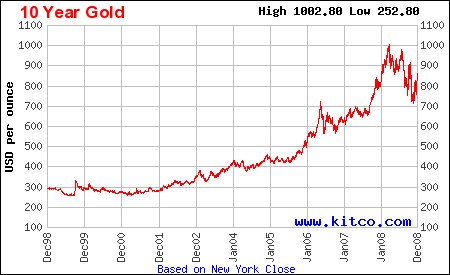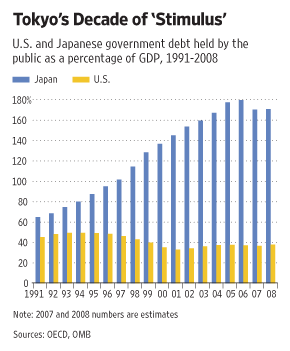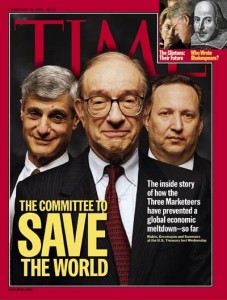Treasury Secretary Hank Paulson is back at it. Having presided over the debasement of the U.S. dollar, he is once again cajoling the Chinese over the value of its currency, the renminbi (or yuan). Paulson earns a few points for his semiannual Special Economic Dialogue that has facilitated U.S.-Chinese cooperation on some fronts and helped defuse some of the worst protectionist policy on both sides. But the Greenspan-Snow-Bernanke-Paulson weak dollar policy — which was in itself deeply protectionist, and ultimately highly self-destructive — utterly swamped any of Paulson’s good intentions vis-à-vis China.
Digging through some old files, I found a May 13, 2006, e-mail I wrote to a senior White House economic official, warning of the certain harmful effects of its weak-dollar policy. (I had, six months prior, met with the official in the West Wing to discuss the matter.) The morning of my e-mail, The Wall Street Journal, citing top Administration officials making clear their weak-dollar preference, had published a major story: “U.S. Goes Along With Dollar’s Fall to Ease Trade Gap,” with the subhed, “Quiet Acquiescence Holds Possible Risks for Economy; Surge in Exports in March.”
The previous week economist John Taylor, just off his post as Treasury Undersecretary, had, in another Wall Street Journal article, dismissed the views of Nobel laureate Robert Mundell and Stanford economist Ronald McKinnon. Mundell and McKinnon had been arguing against dollar weakness and urging dollar-yuan stability. Taylor’s offensive, moreover, had been previewed by yet another two articles, one from Martin Feldstein and another from Lawrence Lindsey, arguing for a “more competitive” dollar. That’s a euphemism for weak, as in competitive devaluation. (See, not supposed to happen in America).
Written in the heat of battle, I think my e-mail memo holds up pretty well:
From: Bret Swanson <bret.swanson@********.com>
Date: Sat, May 13, 2006 at 1:38 PM
Subject: stunning protectionist mercantilism
To: [senior White House official]
*** Warning: Blunt Statements to Follow ***
[senior White House official],
Even considering Treasury’s misguided currency stance these past few years, today’s news in the Journal that the White House approves of the further weakening of an already too-weak dollar is stunning and alarming.
Using monetary policy to target the trade deficit instead of using monetary policy for its only legitimate purpose of price stability and currency stability, is massively irresponsible. The trade deficit is a mostly meaningless accounting number that if anything demonstrates the strength of the American economy, not its weakness. “Competitive devaluation” is what Third World nations did for decades. It’s what helped keep them poor. It’s what we did in the 1970s, a lost decade of malaise. In an era of globalization, currency devaluation is more damaging than ever when there is more cross-border trade and investment and a larger proportion of inputs into our final products and services come from abroad.
An already inflationary dollar will become more inflationary. Oil prices will rise further. Recession in 2007 now becomes a real possibility because the Fed will likely now overshoot on interest rates to combat inflation that they and Treasury created but which they never see until it’s too late. Why are we risking ruin of a robust economy?
The best economists I know are alarmed at the Fed’s lack of vigilance and the deepening of Treasury’s weak-dollar policy. Having now lost faith in the Fed and Treasury, these economists have changed their outlooks for the U.S. economy from positive to negative.
Lindsey and Feldstein are 180-degrees wrong on monetary/currency/trade policy. Clearly their recent Journal articles were a set-up for this potentially disastrous currency move. John Taylor’s statements last week pooh-poohing Mundell and McKinnon — who are absolutely right on China — were equally discouraging. Not since Richard Nixon have Republicans stood for debasing the currency. It’s painful to agree with those who say this may be the most protectionist Administration since Herbert Hoover.
The U.S. Auto Companies and manufacturers want a weaker dollar — manufacturers always do — but the dominance of the Japanese auto makers is not a currency issue. Japan has just come out of a decade of deflation — the yen was way too strong, not artificially weak — exactly the opposite of what the auto makers say. Manufacturers in general face a huge challenge from China, but not because of the yuan, which is exactly in line with the dollar. The China challenge is real, not monetary. The U.S. must become more competitive via lower tax rates and less regulation. Currency is nothing but a scapegoat, and focusing on it reduces the chances we can solve our real competitive disadvantages on taxes and regulations. Because changing the unit of account cannot change the terms of trade, debasing the dollar does not make us more competitive; it makes us less competitive because it fosters inflation and possibly recession.
Furthermore, autos and manufacturing are a shrinking portion of our economy, and this misguided protectionist policy at their behest is highly damaging to the real, growing, leading edge sources of American wealth and power: our prowess in technology, finance, and entrepreneurship.
Please forgive my blunt statements. I make them with respect and concern for the success of this White House. I know you can’t comment on currency matters, but if I am overreacting or wrong on my interpretation of what appears to be happening, please let me know.
Very best,
Bret
I then sent the following warning to a number of friends at the U.S. Chamber of Commerce, who had been seeking my views:
From: Bret Swanson <bret.swanson@*******.com>
Date: Sat, May 13, 2006 at 2:26 PM
Subject: ALERT: stunning protectionist mercantilism
To: [U.S. Chamber officials]
ALERT
I believe the outlook for the U.S. economy could be shifting. An article in this morning’s Wall Street Journal makes clear that instead of reversing the dollar’s decline and inflationary pressures, the White House and the Fed are actually encouraging a further fall of the dollar. Amazing. This means more inflation, a potential Fed overshoot on interest rates, and a slow-down and possible recession in 2007. None of this was necessary. We’ve had a very robust economy since mid-2003, and it could have easily continued. Debasing the dollar in a misguided protectionist attempt to reduce the trade deficit is hugely counterproductive. I warned of this possibility in my February memo but held out hope that the Fed and Treasury would reverse its inflationary/weak-dollar course in time to blunt these effects. No such luck.
What this means: The Chamber should prepare for a slow-down/recession in 2007-08. We should prepare for an inflationary environment. This policy means gas prices will probably stay high or go HIGHER. Some auto and manufacturing companies could benefit in the very short term, but overall this is bad for the larger economy, especially for technology and financial firms and for entrepreneurs. When the Fed figures out what’s going on, it will have to raise interest rates more than if it had gotten ahead of the curve in 2004-05. Commodity based businesses will continue to do well for a while, with intellectual property based businesses being hit the hardest. Eventually a recession would hurt everyone.
Currency volatility will also discourage international trade and investment, which could lead to slower global growth.
I’ll continue to think about what this means and how the Chamber should prepare.
Best,
Bret
Most of this scenario came to pass. Oil and commodity prices rocketed. Subprime loans, fueled by easy weak-dollar credit, kept flowing through 2006 and 2007. And the U.S., we now know, hit recession in “2007-08.”
Only the mechanism was a bit off. With elevated inflation, real interest rates never got very high — certainly not to the point that normally causes recessions. But the bursting of the adjustable-rate housing bubble, enabled by weak-dollar easy money, and the ensuing credit crisis had the same effect as a high real Fed Funds rate.
Many of the easy money mistakes had already been made by the Fed in 2003-2005. But this crucial period in 2006, when the U.S. government doubled down on a misguided weak-dollar strategy, told foreign capital to stay away, directly devalued all dollar assets, accelerated the financial collapse, and destabilized the globe.
Please, Mr. Paulson, enough with the currency lectures.
(You can find a much more detailed history of the whole era within this longish economic history of China (1978-2008) or this shorter article.)




